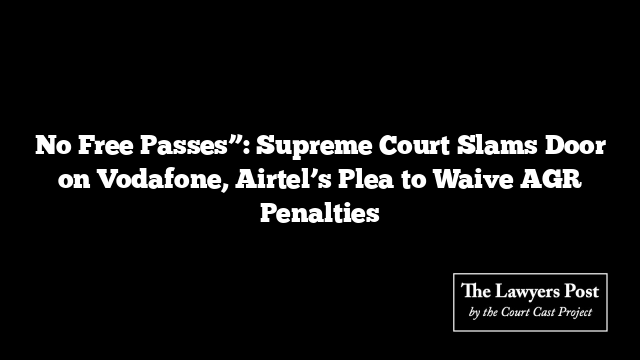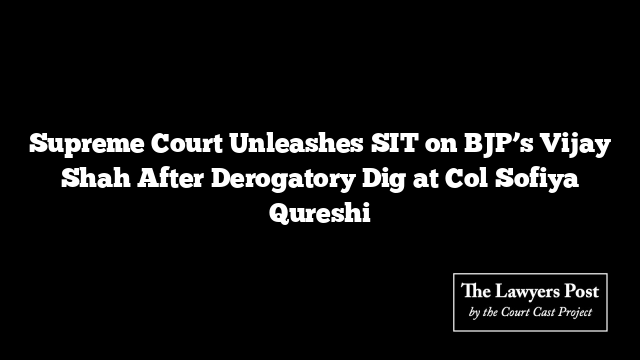In a blunt rejection that sent a clear message to India’s struggling telecom sector, the Supreme Court on Monday threw out pleas by Vodafone Idea, Bharti Airtel, and Tata Telecom seeking relief from the crushing financial baggage of their Adjusted Gross Revenue (AGR) dues. Their request? A waiver on interest, penalties, and interest on penalties. The Court’s response? A firm no—and a scolding.
A two-judge bench of Justices JB Pardiwala and R Mahadevan minced no words. “Misconceived petitions,” they declared, visibly irked by what they viewed as a desperate attempt by heavyweight corporates to shrug off judicially affirmed liabilities. “Multinational companies of such repute cannot come knocking with such pleas,” the bench observed, dismissing the petitions outright—no adjournments, no negotiations, no room left for hope.
Vodafone Idea had argued it simply didn’t have the cash flow to comply. With an annual operating income of about ₹9,200 crore and AGR installments amounting to ₹18,000 crore per year for the next six years, the company warned the Court that continuing this financial trajectory was akin to slow corporate asphyxiation. It stressed its role as a crucial market player, with 200 million subscribers and over 20,000 employees, and pleaded for a reprieve to ensure survival.
But survival, the bench made clear, couldn’t come at the cost of undermining the finality of judicial orders.
The telcos’ legal teams had requested a delay in the hearing, hoping for time to coax some relief out of the government. That was flatly denied. “We are not here to wait on backroom talks,” the Court seemed to suggest.
Vodafone Idea’s proposal had been to peg the principal dues at ₹17,213 crore, scrap all add-ons (interest and penalties), and stretch the balance payment of ₹7,852 crore over two decades. The Department of Telecommunications (DoT) summarily rejected that offer last month, citing the Supreme Court’s 2019 ruling, which upheld the government’s broad definition of “gross revenue”—a definition that included not just core telecom income but also peripheral earnings like rent, interest, and asset sales.
That 2019 judgment was a turning point. It reversed earlier Tribunal rulings that had favoured the companies, and led to a massive recalibration of liabilities:
- Vodafone Idea: ₹58,254 crore
- Airtel: ₹43,989 crore
- Tata Teleservices: ₹16,798 crore
These amounts were not new; they were the result of nearly two decades of bitter litigation. The dues ballooned with the compounding effect of interest and penalties—elements the companies were now trying to escape from.
Vodafone Idea didn’t challenge the core AGR judgment this time. It only targeted the “extras”—the very elements that caused the dues to spiral from lakhs to crores. It pointed out that the Centre itself owns nearly 49% of the company’s equity—acquired through the conversion of spectrum and AGR dues—and thus has a stake in seeing it stay afloat. But the Court refused to be moved by that logic.
The 2021 Telecom Relief Package, cited by Vodafone as an implicit acknowledgment of the sector’s peril, offered some leeway—moratoriums and a friendlier AGR definition. Yet, the Court signaled that such policy shifts don’t retroactively rewrite settled judicial orders.
No lifeline came from the bench. No wiggle room was left. The telecom majors walked in hoping for breathing space; they walked out with the door firmly shut.
The message from the country’s highest court couldn’t have been clearer: the rule of law does not bend, even for the Goliaths of industry.





